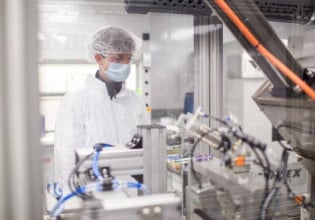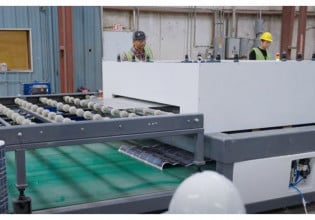UK-Based Organizations Sign MoU for Prototype Solid-State Battery Development
Seven organizations based in the UK come together to form a consortium focused on prototyping solid-state battery technology for automotive applications.
Recently, world-leading organizations based in the UK came together to sign a memorandum of understanding (MoU) focusing on the development of prototype solid-state battery (SSB) technology, targeting automotive applications. The crosscultural endeavour brings together organizations from academia and industry that specialize in battery research, development and manufacturing. SSBs have the potential to provide an attractive next-generation battery technology alternative to conventional lithium-ion battery (LiB) technology.
Solid-State Battery Technology
A key factor that has led to the rapid growth of the SSB market is the need for more energy efficient batteries which can be made smaller and lighter. Solid-state lithium ion batteries are a lightweight, high power density device that is known for it's imperviousness to leakage or damage from overcharging or overheating. The ability to hold more charge for a given volume can provide electric vehicles (EVs) with a greater range.
SSBs are considered to be one of the most promising technologies in power storage. They have a number of other advantages over LiBs such as improved safety, cheaper manufacturing costs, and an extended lifetime.
SSBs are safer than LiBs because they do not use a liquid electrolyte. The LEs used in LiBs can be flammable and volatile which means that they can pose a risk of explosion and even a fire. Solid-state battery cells are more durable and last longer than LiB cells. SSBs also require less maintenance with no need for coolant systems or external heating devices.
The Consortium and its Purpose
The consortium will be comprised of seven organizations which include: the UK’s independent institute for electrochemical energy storage research, The Faraday Institution, WMG University of Warwick, the University of Oxford, Emerson & Renwick (E+R), Britishvolt, Johnsson Mathey, and the UK Battery Industrialization Centre. The Faraday Institution led the establishment of the consortium and will be leading its development.

Britishvolt will be one of the consortium organizations supporting the development of SSBs. Image used courtesy of Britishvolt
In a news release from last month, the CEO of Faraday Institution, Professor Pam Thomas, commented, “I am delighted to be able to announce the formation of this unique consortium for the advancement of solid-state battery prototyping that includes leading UK-based organizations at many stages in the value chain.” Professor Thomas added, “Our leadership in this venture signals a move towards a role that the Faraday Institution will increasingly play as a trusted convener of significant partnerships between UK industry and academia as a route to commercialize breakthrough science emerging from our research programs to maximize UK economic value.”
The collaboration will be supporting the development of a unique facility for prototyping SSB technology. Faraday Institution SSB researchers and industrial partners plan to combine their expertise to produce larger SSB cells with scalable manufacturing techniques. The manufacture and testing of the cells will be recorded, reviewed, and improved on to make new iterations of SSBs.
Another key aspect of SSB prototype development is the potential to reach carbon neutrality. The CEO of Battery Materials at Johnson Matthey, Christian Gunther, said, “The realization of a prototype solid-state battery cell will be a great achievement for the UK battery industry, and this consortium will be a critical enabler for delivering this milestone. Delivering enhanced range and safety over traditional lithium-ion battery technologies will be a key driver for battery electric vehicle adoption, supporting the transition to a net-zero future.”
The collaboration between top-level organizations with a range of academic and industry experience is set to push forward SSB development and make a significant impact on the ETA of the UK’s green energy revolution.







Great, Thanks for posting!